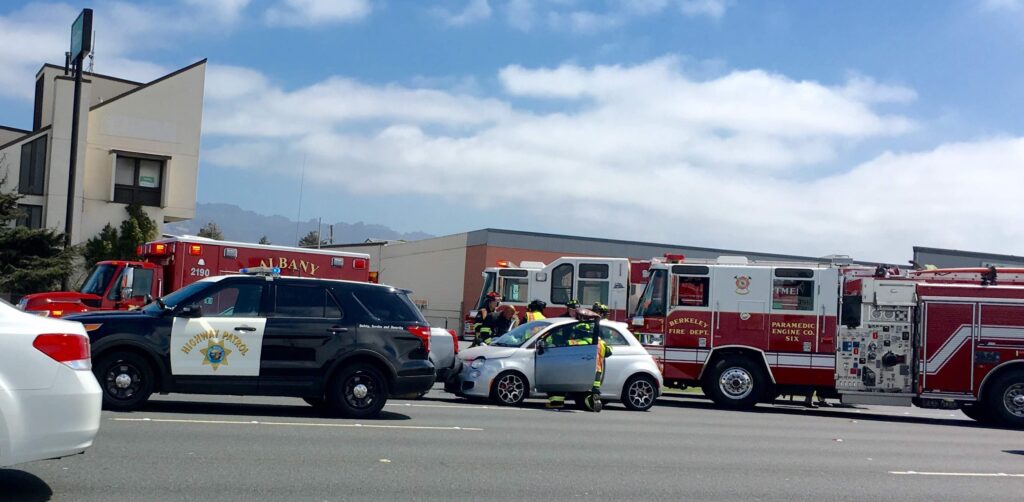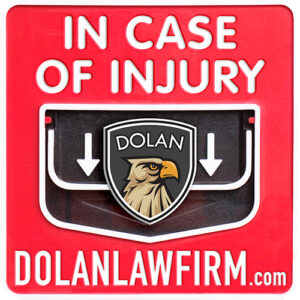
San Francisco Train Accident Lawyer
Train accidents occur far less often than car accidents, but when they do take place, they often result in catastrophic injuries. These types of accidents are especially frustrating because they are almost always the result of at least one party’s negligence. Fortunately, accident victims who can provide evidence of negligent or reckless conduct can collect compensation to cover medical expenses, lost wages, and property damage resulting from the accident from the at-fault party, so if you were injured in a train derailment or collision, it is important to speak with an experienced San Francisco train accident attorney who can help you file a claim.
Train Accident Causes
Train operators owe the highest degree of care to their passengers because they are considered to be common carriers. Furthermore, because railroads qualify as common carriers, they are subject to safety regulations put in place by the Federal Railroad Administration (FRA). Failing to fulfill these types of safety standards can have devastating consequences. For instance, failing to ensure that tracks are kept free of foliage can make it impossible for engineers to see approaching turns. This in turn, can cause engineers to speed into turns, leading to a derailment or a collision with vehicles located at railroad crossings. Similarly, a railroad company’s failure to conduct regular inspections can result in a failure to recognize dangerous bolt hole cracks, flaking steel, or other defects, which can cause engineers to lose control of the train itself.
These aren’t the only causes of train accidents, as these types of accidents, like car crashes, occur for a variety of reasons. The most common include:
- Brake failures;
- Equipment defects;
- Excessive train speed;
- Defective gates and signals;
- Fatigue or intoxication;
- Motorist negligence or recklessness;
- Noncompliance with safety standards; and
- Poorly maintained tracks.
Railroad Crossing Accidents
Some of the most common train accidents involve railroad crossings. For instance, train engineers who fail to slow appropriately before a crossing could collide with a vehicle stranded on the tracks. Failed gates and signals also result in these types of accidents. However, many railroad crossing collisions are actually the fault of a motorist or pedestrian. For this reason, California law specifically states that:
- All school buses and most commercial vehicles are required to come to a complete stop at least 15 feet before reaching a railroad crossing;
- Trespassing on or near railroad tracks or pushing a vehicle along them is a misdemeanor crime;
- Motorists are prohibited from parking or coming to a complete stop on or within seven and one-half feet of a track;
- Motorists are only permitted to cross a railroad if there is enough room on the other side of the tracks to allow a train to pass safely;
- Vehicles must stop at the white line before crossing railroad tracks; and
- Speeds limits are always presumed to be 15 mph when a motorist is within 100 feet of a railroad crossing.
When motorists fail to comply with these laws and cause an accident, they or their estate can be required to compensate those injured in any resulting accidents. Government agencies are also required to fulfill certain responsibilities under state law. For example, California law requires municipalities to place warning signs within a reasonable distance from all railroad crossings, so cities that fail to do so, can be held liable if their actions later cause an accident.
Responsible Parties
While some accidents may be caused by the negligence of a single party, it is much more common for there to be multiple responsible individuals or entities, some of whom could include:
- The owner of the railroad track, which could be a private company or a government entity, that owns or controls the section of the track where the accident occurred;
- A motorist if the crash involved a collision with a vehicle on the tracks;
- The company or government agency that operates the train; and
- The manufacturer of the train engine or its equipment.
If an injured party can demonstrate that the negligence or recklessness of one or more of these individuals or entities caused or contributed to a train accident, he or she could be eligible to collect damages for:
- Past and future medical expenses, home health care costs, and medical monitoring, such as health screenings;
- Property damage;
- Impairment of earning capacity if the injured party can no longer perform the physical or mental tasks required of his or her job;
- Lost wages sustained because the injured party was unable to work;
- The pain and suffering endured by the injured party as a result of his or her injuries;
- Life care costs, including home health care for plaintiffs whose injuries result in permanent disability;
- Wrongful death damages, which are awarded to the surviving family members of victims who pass away as a result of their injuries; and
- Funeral or burial expenses if the victim passed away as a result of his or her injuries.
Although collecting these types of damages cannot compensate someone for the loss of a loved one or a permanent disability, it can go a long way towards helping injured parties move on with their lives following a serious train accident. Unfortunately, filing a claim against railroad companies, manufacturers, train employees, and city officials can be difficult, especially when the negligence of more than one party is involved, so if you or a loved one were injured in a train accident, please contact one of our experienced train accident attorneys today.
Call a San Francisco Train Accident Attorney About Your Case

Sustaining an injury in a train accident can be physically, emotionally, and financially draining for victims and their families. No one should have to go through this type of experience alone, so if you were injured in a train collision or derailment, please call 415-421-2800 to speak with one of the dedicated and compassionate train accident attorneys at Dolan Law Firm about recovering damages for your losses. A member of our legal team is standing by to help you through each step of your case. And remember, initial consultations are conducted free of charge, so please don’t hesitate to call or contact us online today!


